
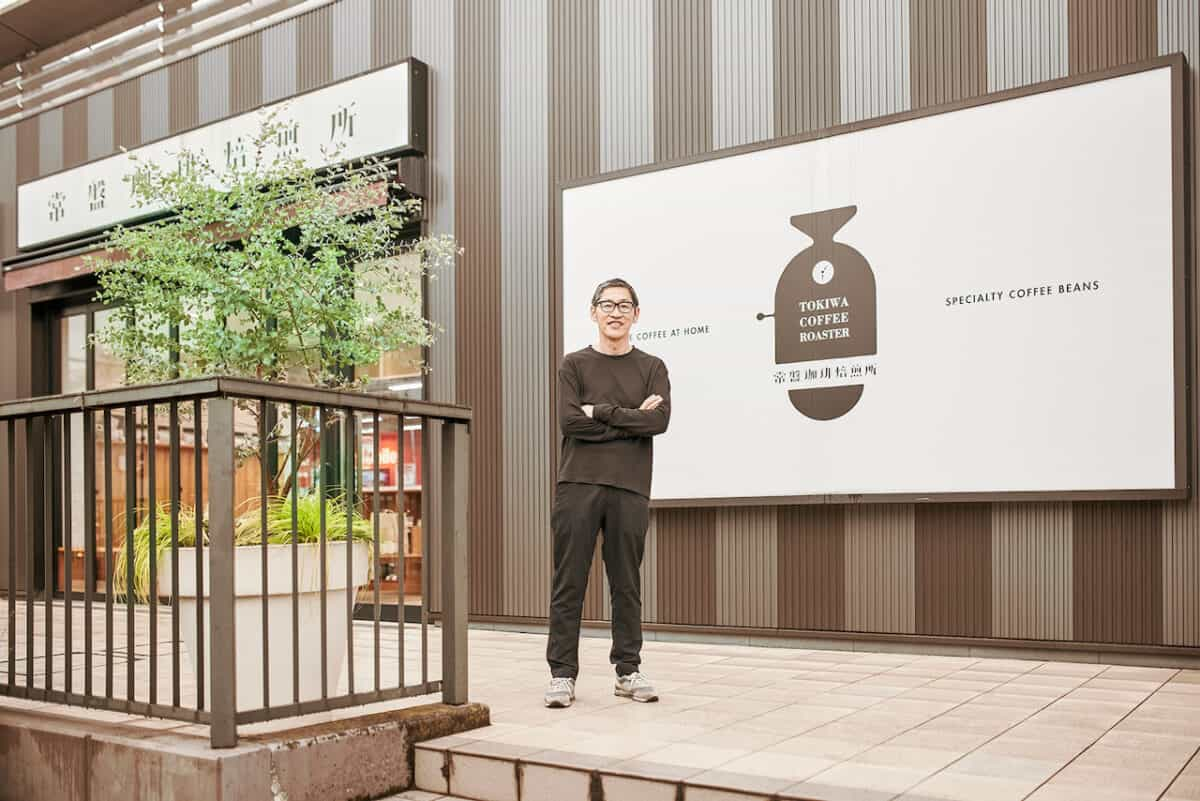
TOKIWA COFFEE ROASTER is a chain of coffee shops specializing in specialty coffees, operating mainly in Saitama Prefecture. Tomidokoro Shinichi is the undertaker behind this business and he has previously run several franchise businesses such as restaurants and fitness clubs for women. With the concept of “fine coffee at home”, he roasts and sells green coffee beans that he sources himself at his community-based shops.
Utilizing his rich business experiences, Shinichi launched TOKIWA COFFEE ROASTER to bring the taste of specialty coffee to as many people as possible. Let’s dig deeper to understand his innermost thoughts.
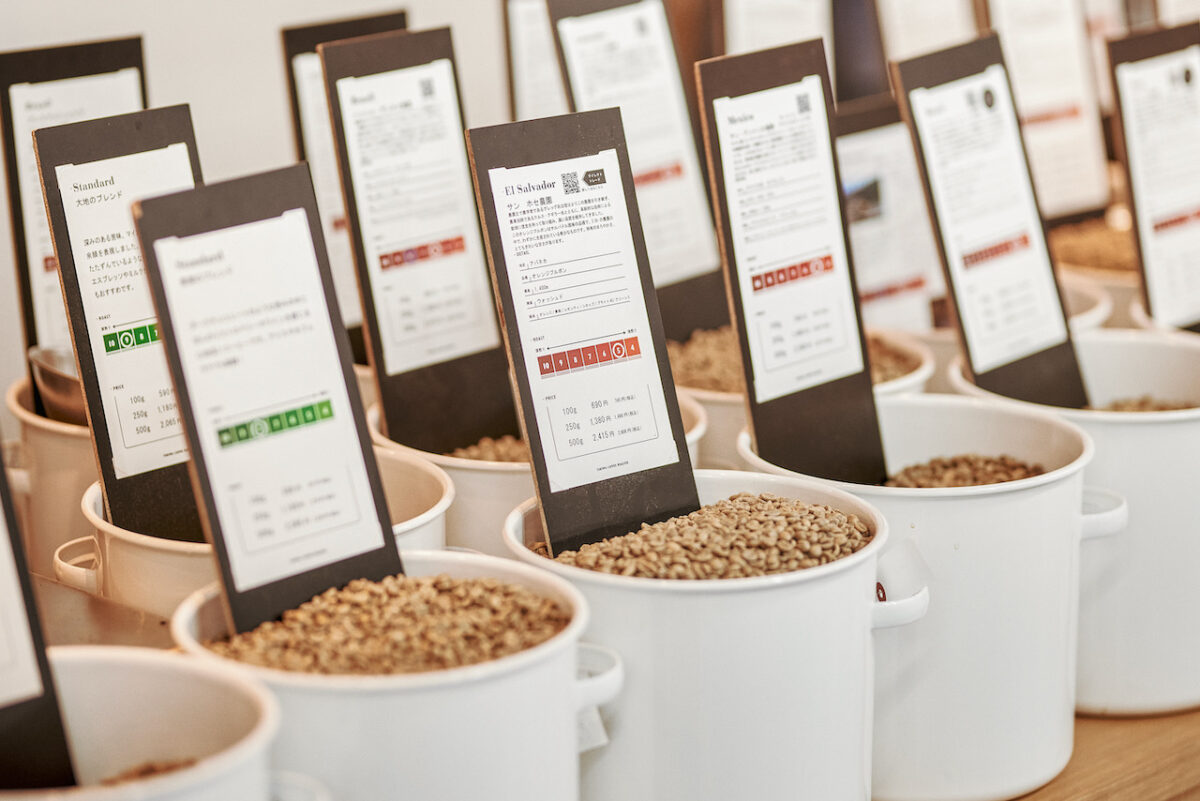
Brewing delicious coffee at home
TOKIWA COFFEE ROASTER is unique in that it is a chain business, which is rare for specialty coffee shops and in that its main business is selling green coffee beans, not like an eat-in chain where you drink inside. In 2012, they opened the first and main shop in Omiya and then later expanded to 10 branches. They also sell roasted beans and drip bags online.
The company focuses on selling green coffee because they want people to enjoy good coffee at home on a daily basis.
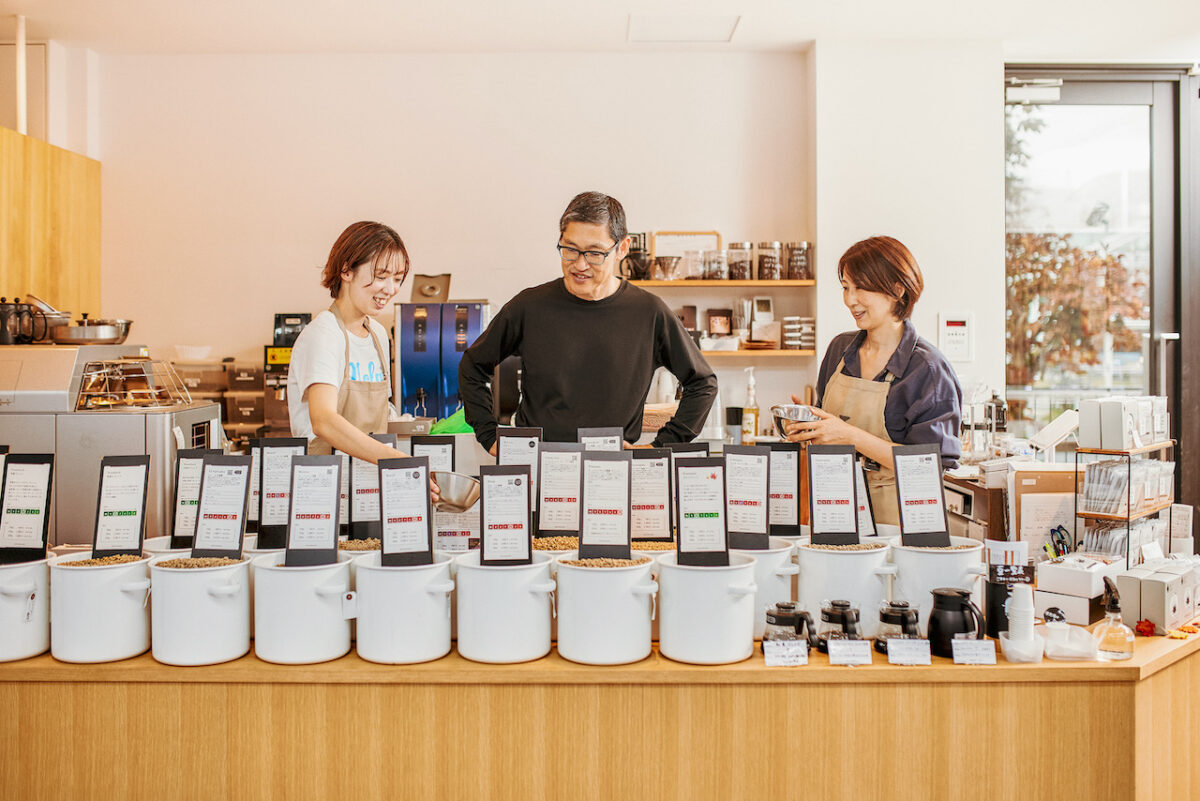
“If it’s a coffee shop, you can only drink coffee when you go there. But at home, you can drink it every day. You can brew coffee from beans that you have bought for yourself and have a moment of relaxation. I think it’s moments like these when I feel my life is enriched. I wanted to help create such moments for people to enjoy.”
As Shinichi says, there’s no large space at TOKIWA COFFEE ROASTER for customers to drink. They do sell cups of coffee in the shop and they offer a cup of coffee as a service to those who purchase green coffee. The company is also planning to resume the coffee seminar for beginners, which was held before COVID-19.
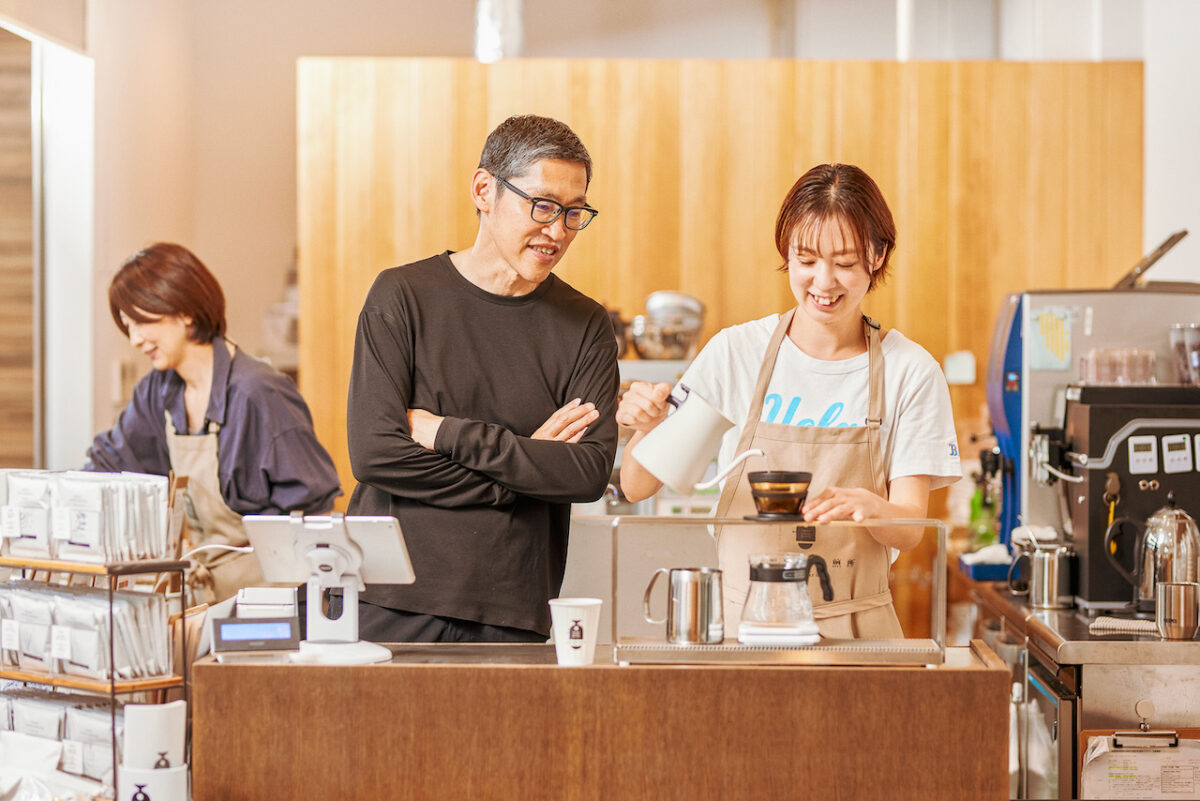
“The reason why we offer pour over coffee in the shop is because we want people to recreate it at home. Our intent is not to focus on advertising the drink, but to showcase a good example of pour over coffee. Everything in our shop is designed for people to drink good coffee at home. So the main focus is the beans. Many of our customers buy coffee after tasting it in the shop, thinking ‘Oh, I didn’t know there was such delicious coffee’ or ‘I want to drink this kind of flavor at home’.
I think many people compromise on the taste of coffee when they make coffee at home. However, if you choose the right coffee beans and understand the tricks of brewing, drinking higher quality coffee than the shop is possible. That’s what I want to tell people the most.”

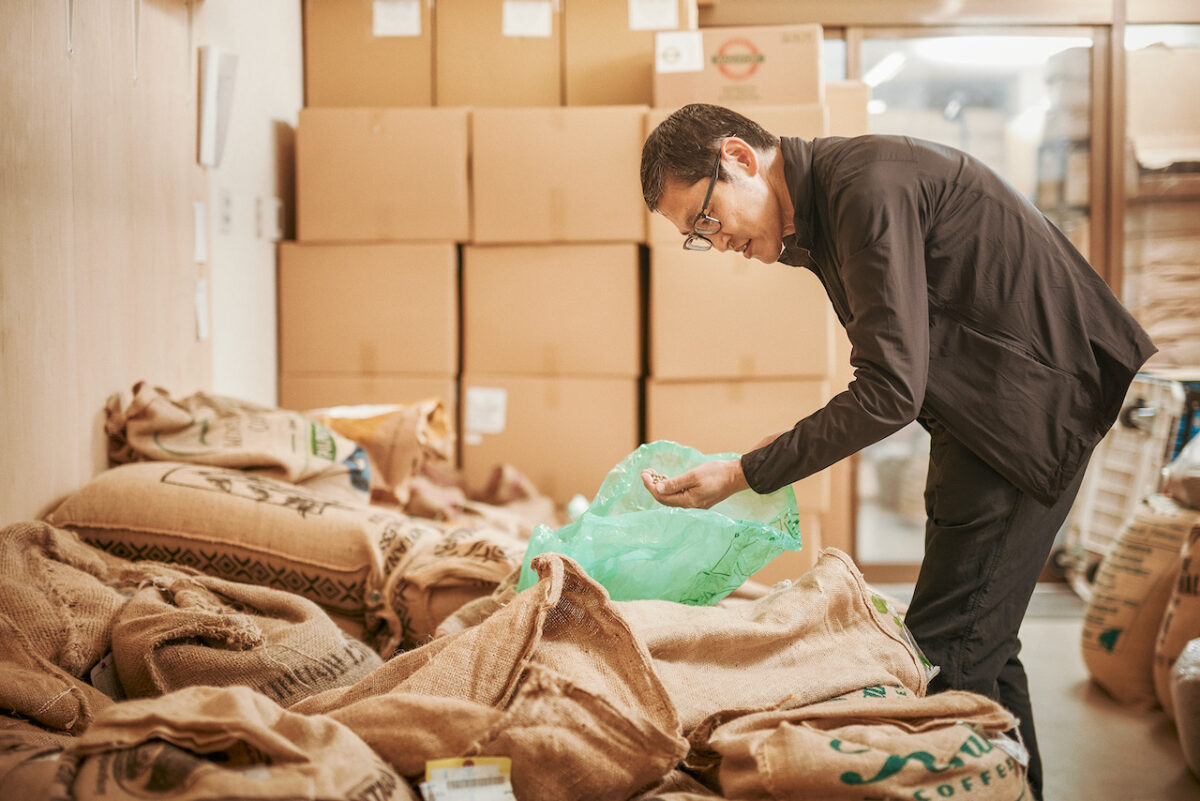
Lowering the bar and broadening the base
The key to his green coffee is that Shinichi personally goes to Central America, Africa and other regions to buy green coffee and often selects them with his own eyes. He directly buys from the producers.
“Most of the farmers who grow specialty coffee are small-scale farmers. I’ve visited the farms and I’ve also observed the production process and I’m amazed to see how much time and effort they put into sorting the cherries and how carefully they process them. I visit these farms because I want to buy such beans at a fair price.
We are particular about offering good green coffee at a reasonable price. We also carry the highest quality beans and we put a lot of effort into finding great quality beans in a price range that would still be accessible for regular coffee drinkers to consider buying.”
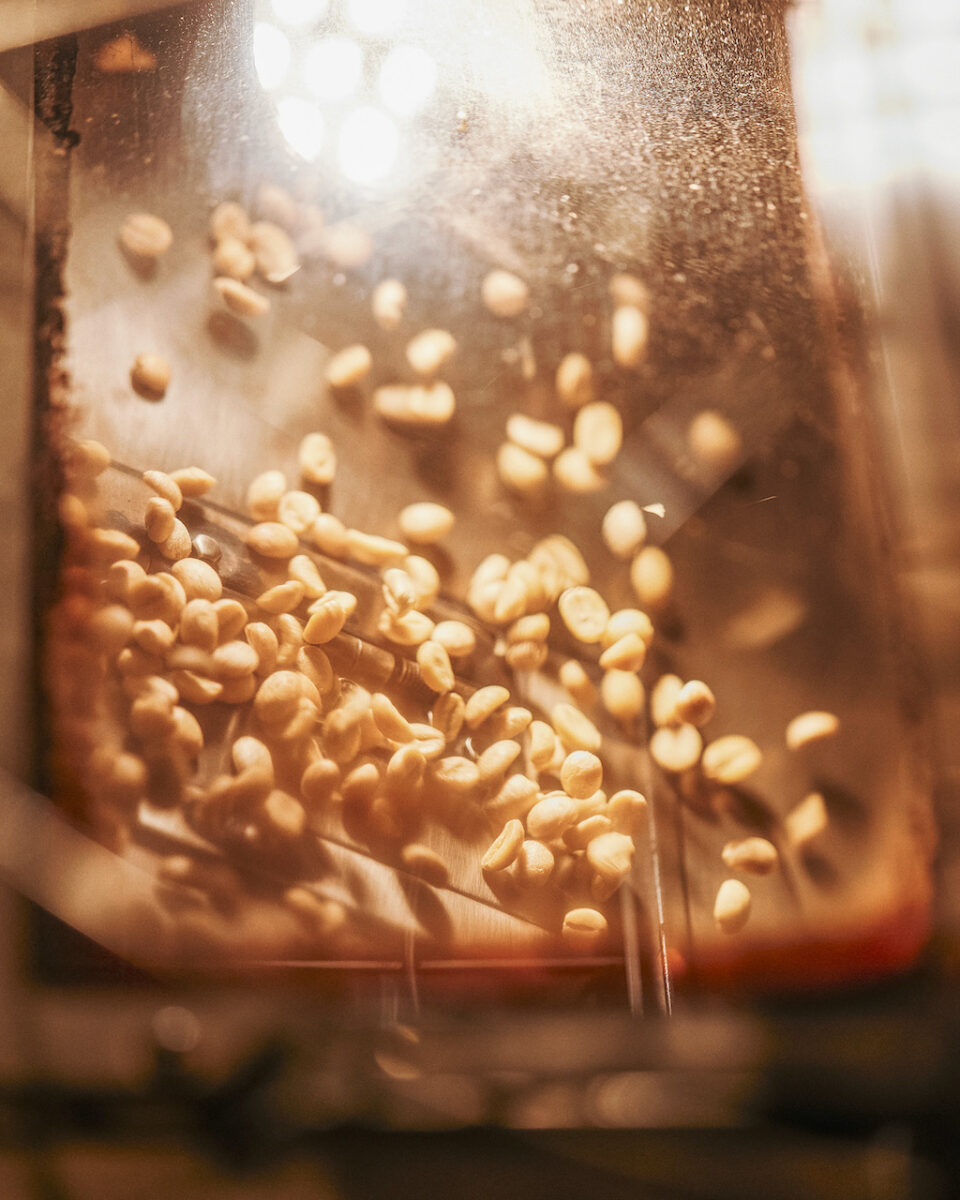
The lineup of green coffee changes according to the season and there are regularly about 30 varieties on display in the shop. We start roasting after receiving orders. The green coffee is different from the coffee that people usually imagine and it is difficult to enter the shop without knowing what it is if you don’t know much about coffee. From roasting to handing over the product, the buyer would need to wait for 10 minutes. Even so, the shop has maintained this style since its opening.
“They don’t need to be aware that it’s specialty coffee. They just think of it as something interesting and something that they would like to try. I want to lower the bar as much as possible and expand the number of curious coffee drinkers. That’s why we roast after orders are received and offer a drink to those who purchase green coffee. For those who don’t know what to choose, we ask them what they usually like and we suggest a certain coffee to try.”

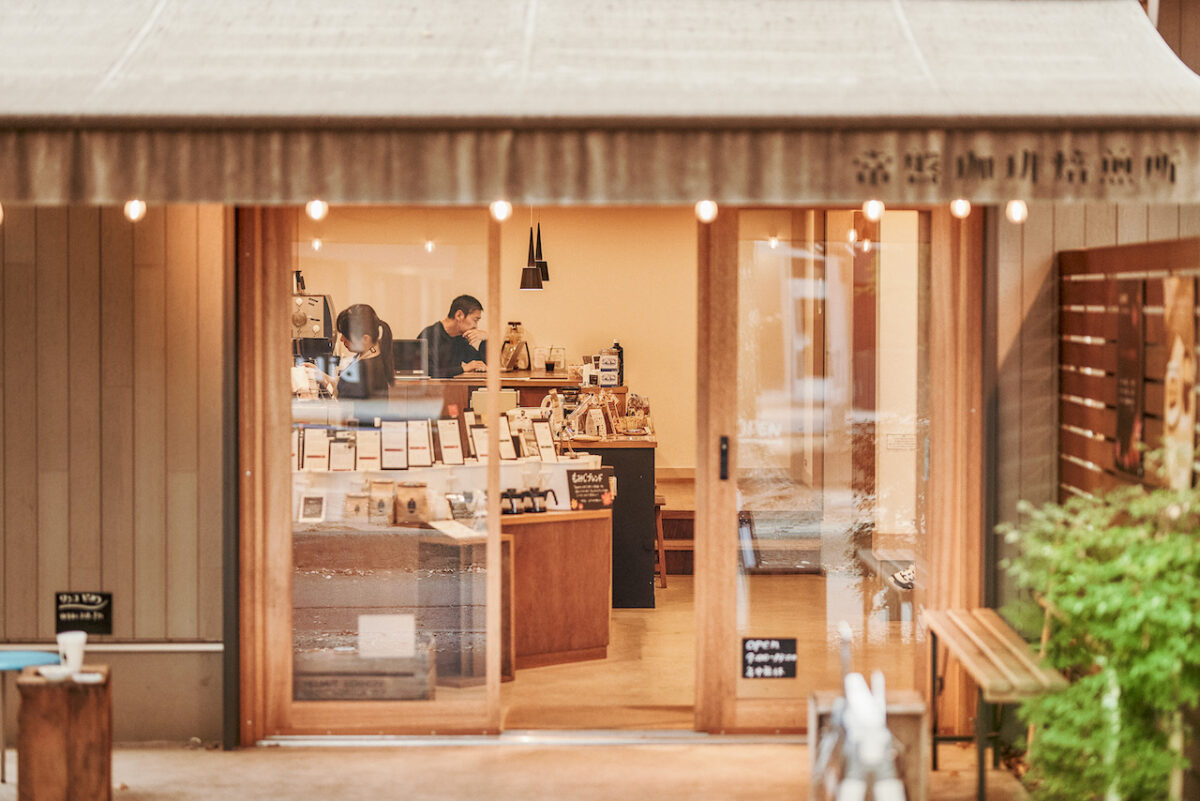
Hope that never ceased despite hardships
Although the number of shops is steadily increasing now, including the opening of a new shop in Kawagoe in November 2021, the first shop didn’t have any customers at all when it first opened and they struggled a lot more than expected.
“It was really miserable. I really couldn’t sell anything and I wanted to quit. No one even stepped into the shop. I waited patiently and tried various ways to approach the customers such as offering a pour over coffee at reasonable prices and creating a stamp card, where repeated users can earn special benefits.
Despite the difficulty, he didn’t try placing advertisements or distributing flyers to increase immediate sales.
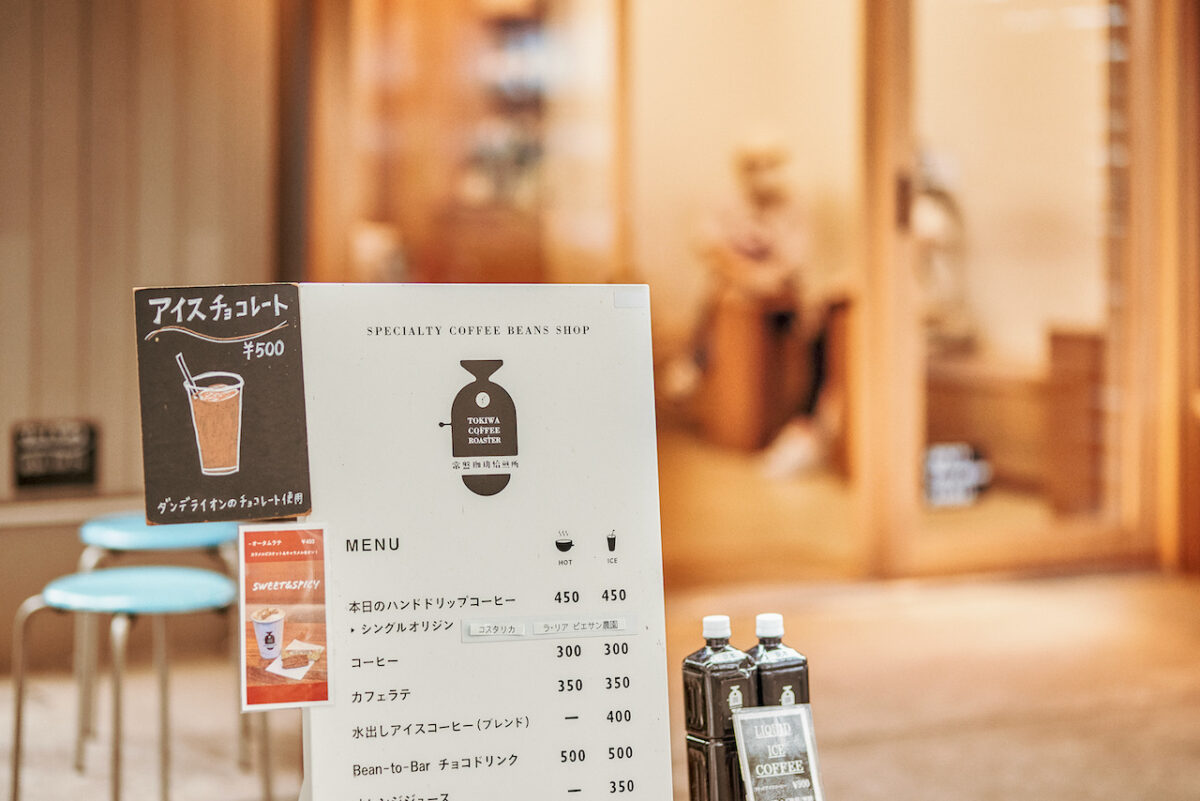
“Basically, I was hoping that word of mouth would spread. I wanted to create a shop that would be loved by the local people in the long term. I was expecting more people to think ‘I just happened to see a new shop in my neighborhood’ and stop by, try a sample, or buy some green coffee.”
Even as he went through daily trials and errors, his desire to spread good coffee did not change. He continued to have hope that more and more people would be aware of its deliciousness.
“I didn’t feel too discouraged about it because I knew that people would start drinking better coffee. So I thought that somewhere along the line, it would gradually start to sell.”
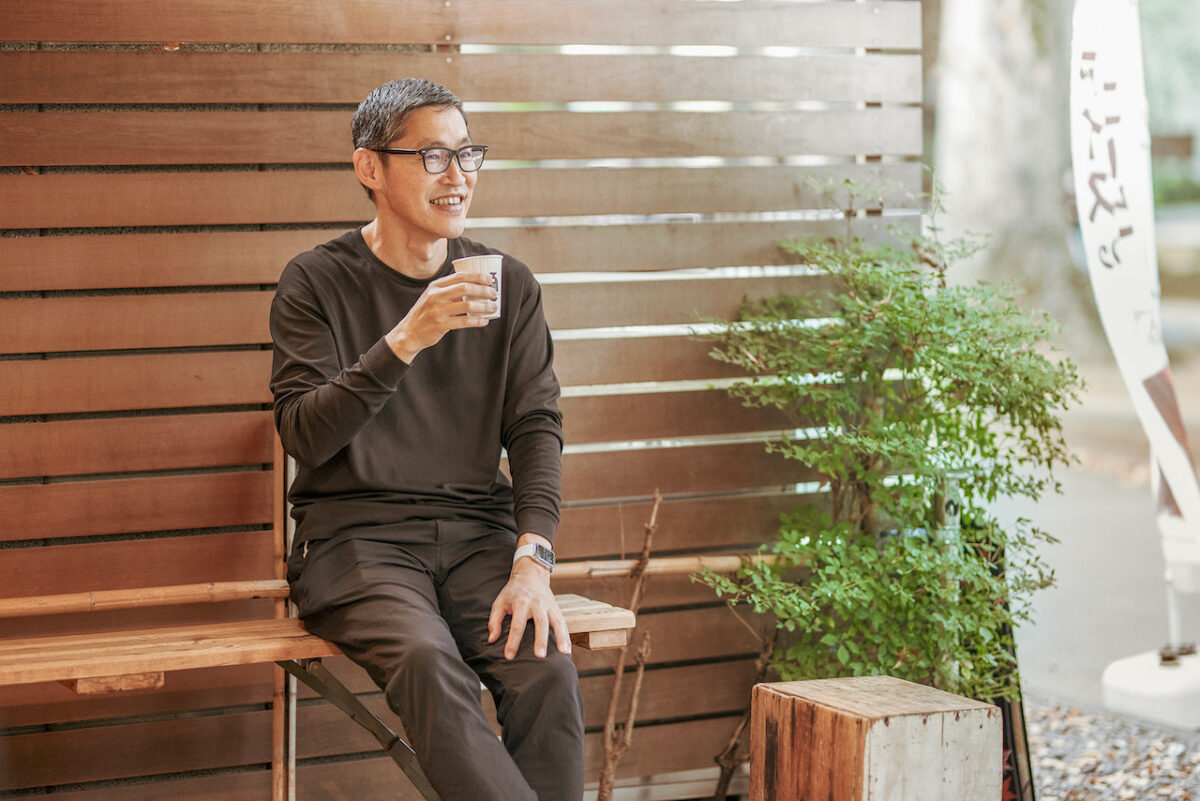
As Shinichi expected, sales gradually increased as the second and third years went by. More and more customers came to the shop by word of mouth and now nearly half of them are repeat customers.
“Everyone is surprised by the flavor at first. People don’t usually have a chance to drink specialty coffee. People who are surprised become repeat customers or introduce us to their friends and I think that’s how we gradually spread.”

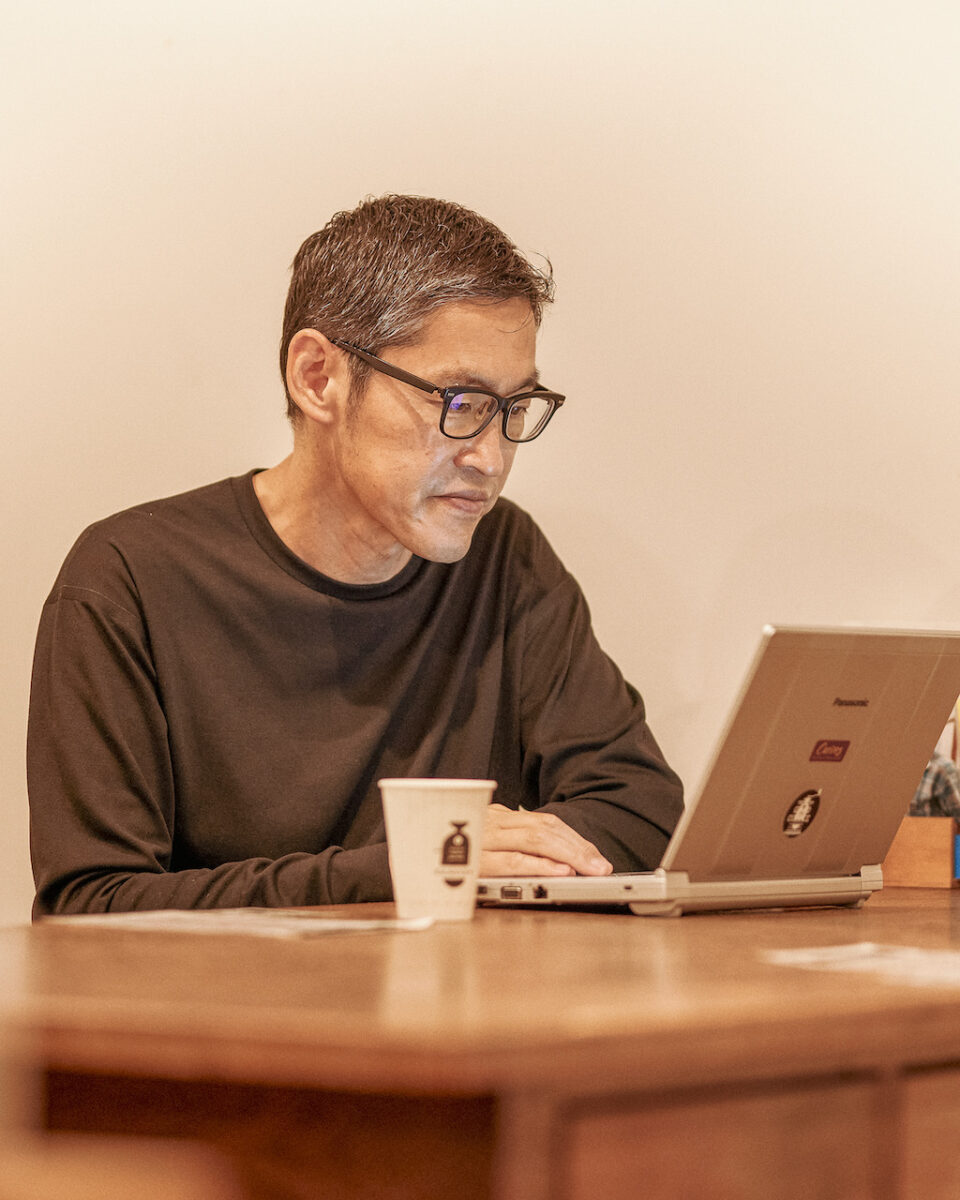
Leveraging franchise experiences to launch original brand
Over the past 20 years, Shinichi has been involved in several franchise businesses, including restaurants and fitness clubs for women. He had always wanted to use his experience to create an original brand. Unlike franchise businesses, which are based on the franchisor’s know-how, original businesses can be created from the ground up.
“We have always wanted to create something new, a shop that no one has ever seen before. We had gained a lot of experiences in on-site operations and learned a lot, so we wanted to use what we had accumulated to do something that only we could do.”

At that time, he happened to visit the United States and witnessed the trend of specialty coffee becoming popular. The origin of TOKIWA COFFEE ROASTER was to spread the experience of tasting the wonderful flavors of specialty coffee and to spread it in Japan.
“I’ve always liked to predict what the world will be like in the future. I’m attracted to businesses that have a new approach that has never been seen before and that will have distinguished features that will last for a long time. In other words, the Blue Ocean Strategy. I like to be involved from the phase when a new market starts from scratch and help the business expand. I think that’s very exciting.”
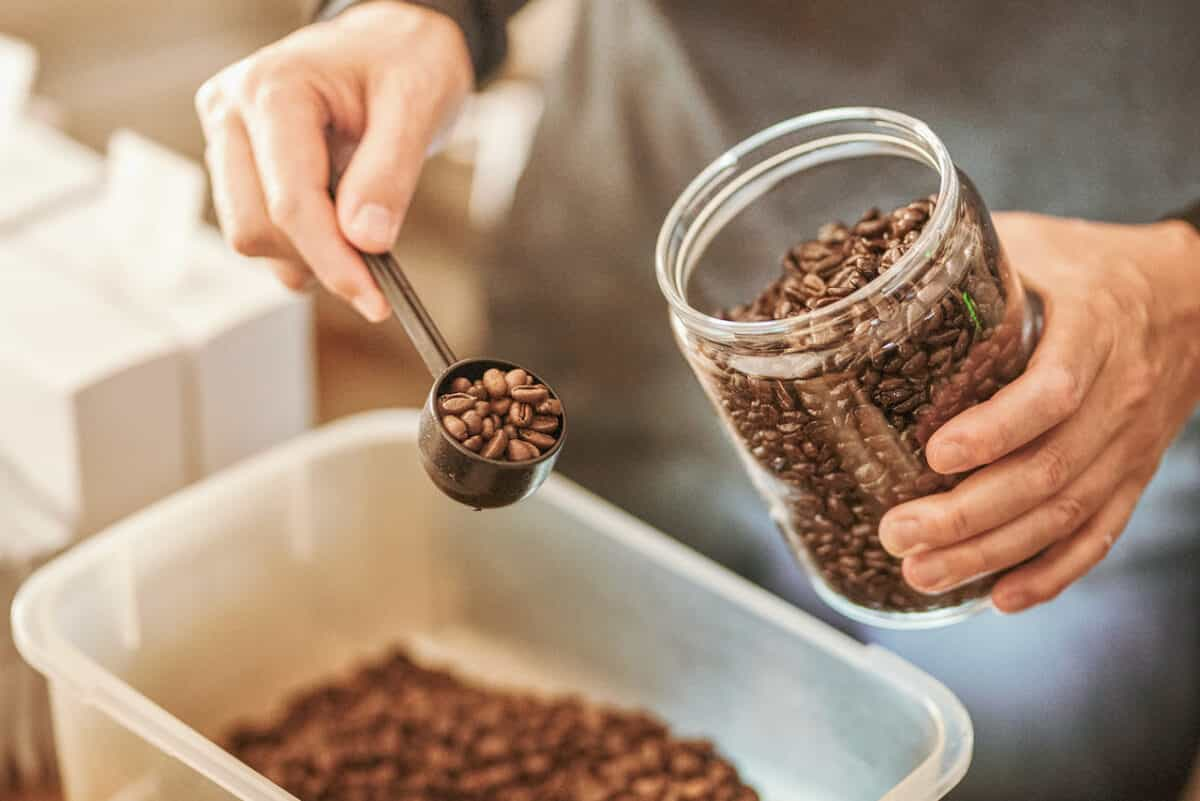
The fitness business for women, which Shinichi joined as a franchisee in 2006, has now grown into a large business with more than 2,000 locations nationwide. At the time when he joined, however, the business was still in its infancy and there was not a single location in Japan.
“When you go into a business where there is no market, you don’t know if it will work or not. In the end, you have to follow your instincts. It’s the same with coffee. When I first started this business, specialty coffee was less recognized than it is now, and there were very few people who knew about it. But I felt that good coffee would eventually become popular in Japan as well.”
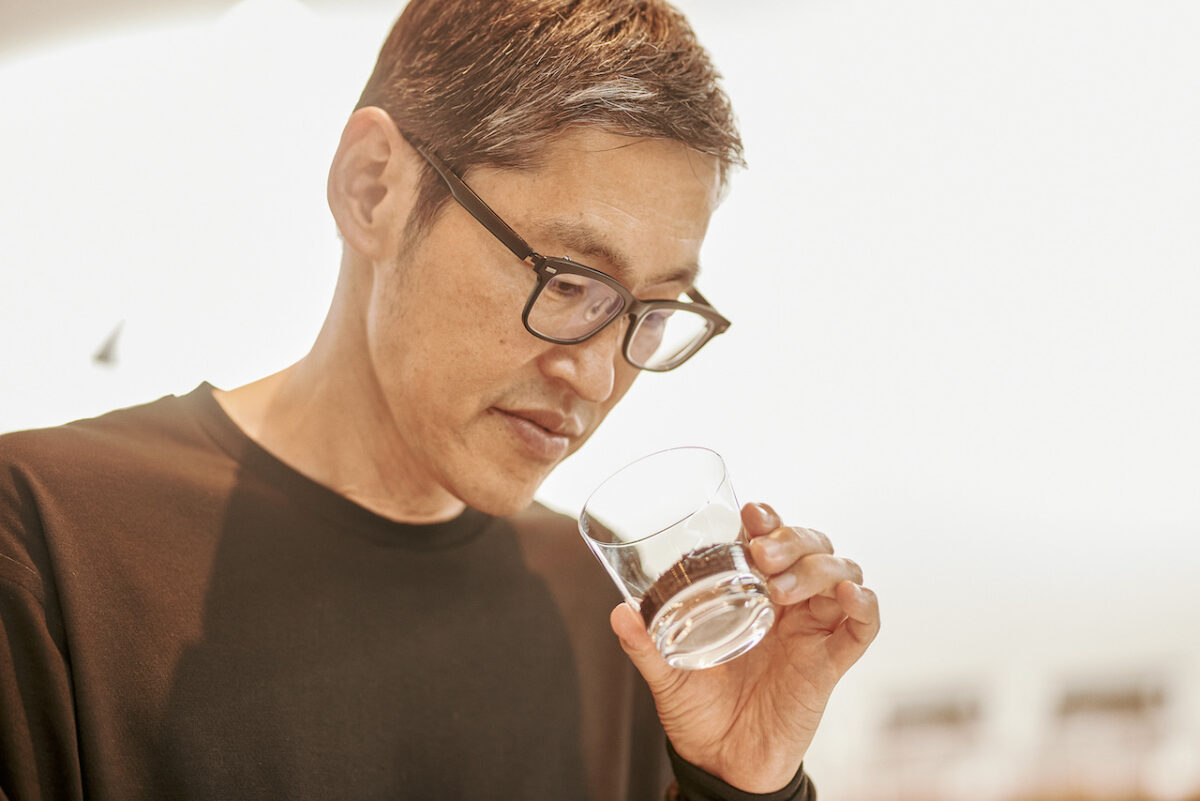
For specialty coffee, knowing that the market penetration was similar to that of wine was a helpful hint.
“In Japan, until 30 to 40 years ago, wine was only red or white, and almost no one cared about the origin. People gradually learned the names of wine origin countries such as France and Italy, followed by regional names such as Bordeaux and then the names of regions and farms became known in detail. What was initially known only by connoisseurs became more and more common. I believe that the same thing would happen in the coffee industry.
In the case of coffee, the difference from wine is that the price range is not as wide. Japanese people have good palates, so even if they don’t know what specialty coffee is, they can tell that it is good. And once you experience it in taste, it’s hard to go back.”

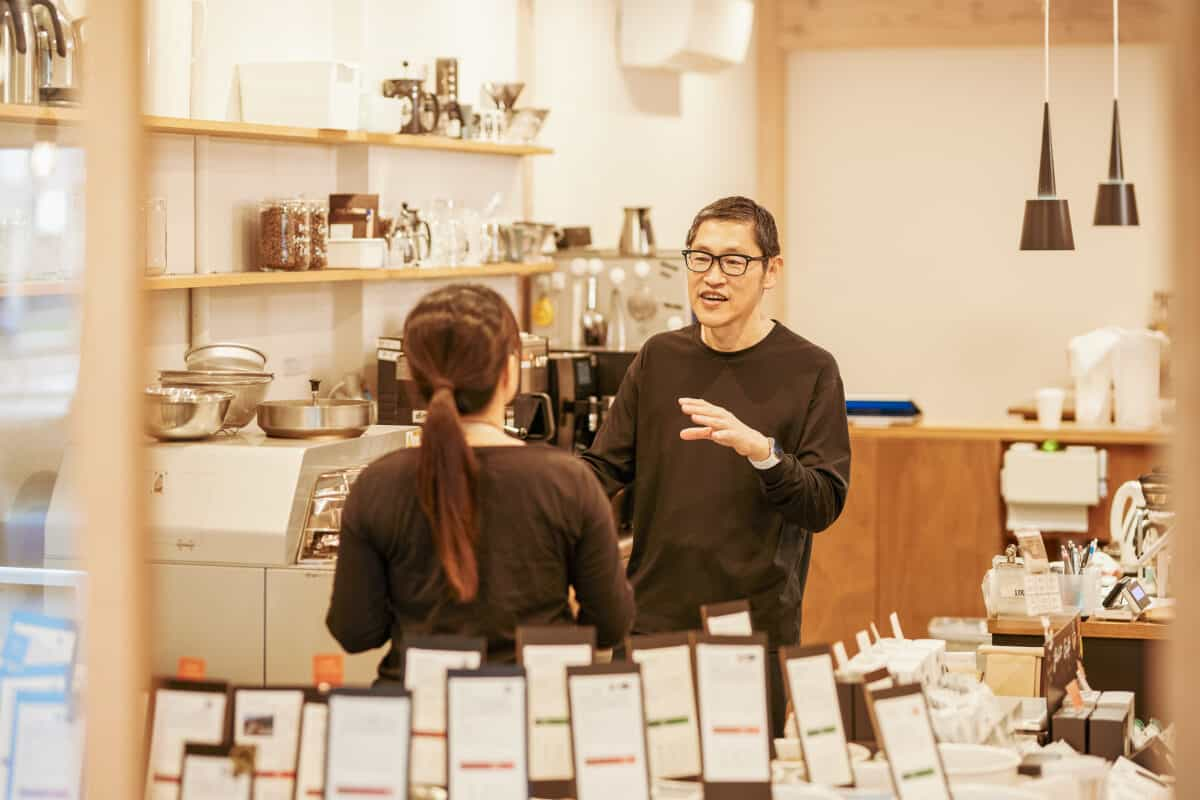
I want people to create a rich life with their own hands.
He has always been particular about the locations of his shops because he wants more people to know the flavor of specialty coffee. All of the shops are located near train stations or other convenient locations and many customers stop by during their walks or on their way home from work. Some customers know a lot about coffee, while others do not. That is why he tries not to use technical terms and explains things in an easy-to-understand manner.
There are about 50 staff members in all shops. They have regular opportunities to discuss the situation and management of each shop, but surprisingly, he rarely educates them about knowledge of coffee.
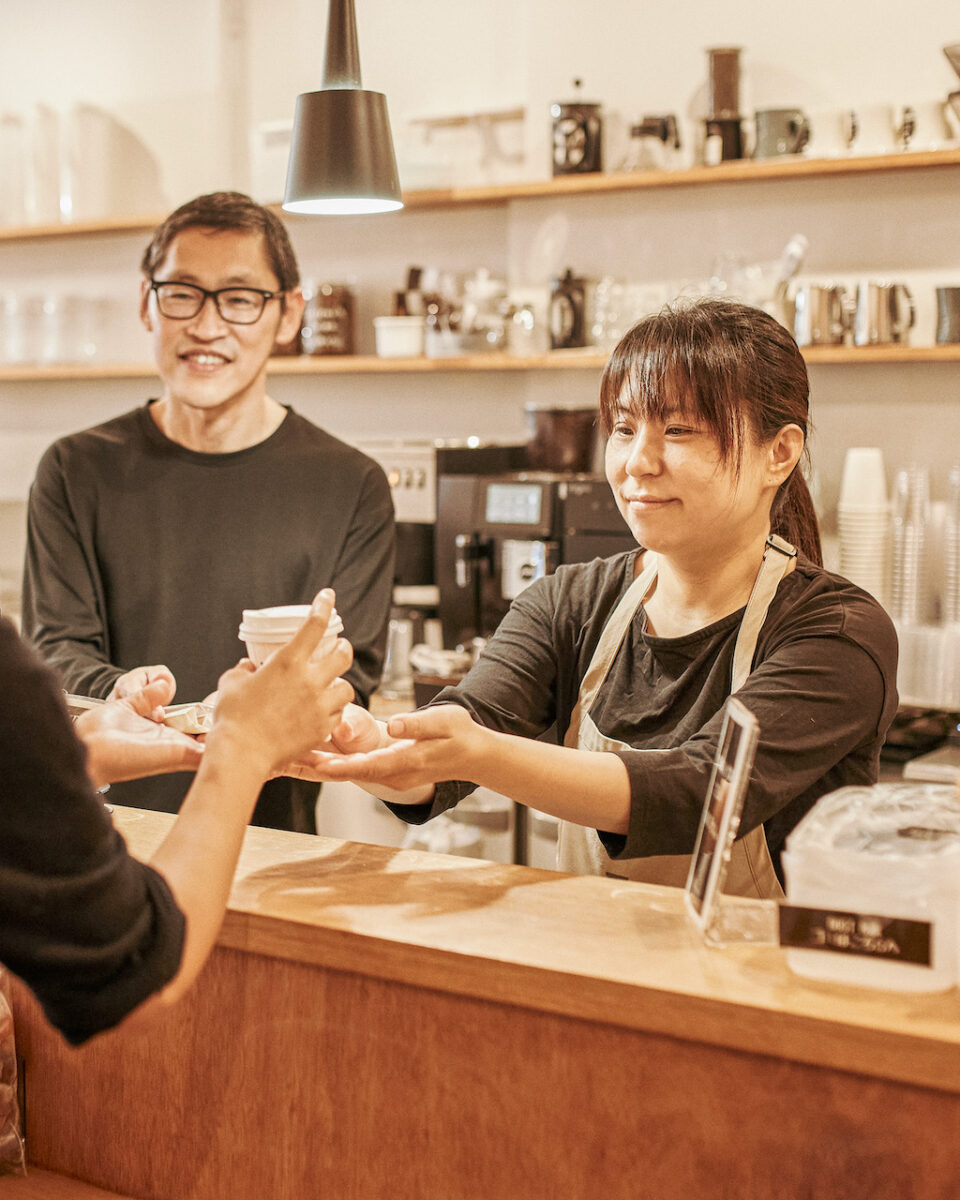
“Everyone loves coffee, so they learn about it on their own without any input from me. What I teach them is more about the ideas that are important to the shop and the customers.
Since it’s a chain business, the quality of the products is thoroughly controlled so that the flavor would be the same in all the shops you go to. There is also a basic framework for the management of the business and the system is designed so that any staff member can work in any shop without any trouble. On the other hand, the way they contact customers is where individuality comes into play. For example, how they decorate in the shop, how they treat customers, and so on. We try to have each staff member be in charge of something, even if it is something small.
I want them to enjoy working. To do that, I think it’s necessary to have their own role and to have their work evaluated and approved. I am conscious of creating such a shop. The same can be said not only of regular employees but also of part-timers. Being in charge of decorating the shop or placing orders makes them work more positively. I would be happy if they could work with a sense of fulfillment.”
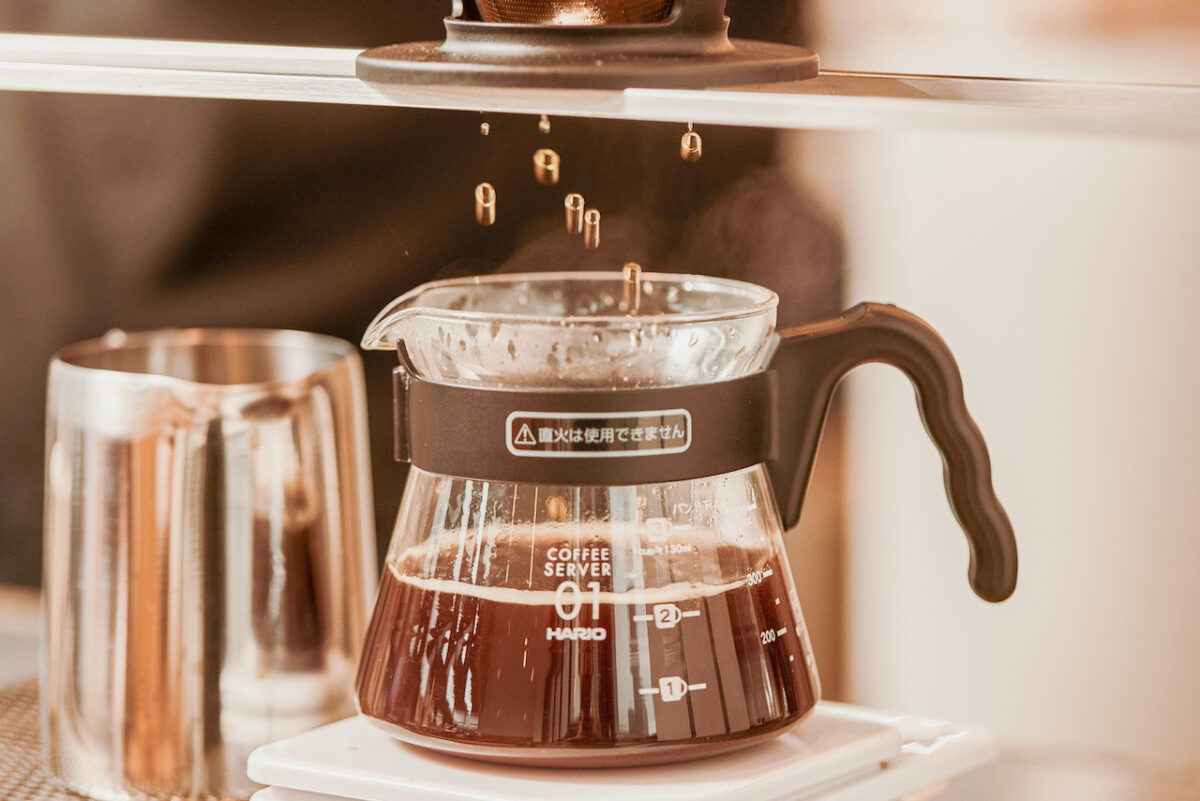
This attitude coincides with his desire for his customers to enjoy their daily lives with coffee brewed by their own hands.
“I want more people to drink good coffee and I want to do what I can to make that happen. Compared to 10 years ago, specialty coffee has become much better known; however, I had hoped that it would have spread further. I believe that specialty coffee will continue to expand, so I plan to increase the number of places where I can connect with customers. The more shops we have, the more opportunities for our staff to work.”
It’s a small thing, but making your own delicious coffee can be a way to add more comfort to your life with your own hands and this can enrich your daily life. What TOKIWA COFFEE ROASTER offers may be a way to create such happiness beyond drinking coffee.
Originally written in Japanese by Kana Ishiyama
Edited by Tatsuya Nakamichi
Photo by Kenichi Aikawa
MY FAVORITE COFFEE
I have been serving various kinds of cold brew coffee in the shop during the summer, but after drinking it again, I have realized just how delicious cold brew is. Using water to brew coffee makes it richer and sweeter. I especially recommend the Ethiopian Natural. It has a faint peach-like aroma, and because it is brewed slowly, it has a gentle flavor. But of course, the best cup is the cup that customers are impressed with when they brew it at home.









